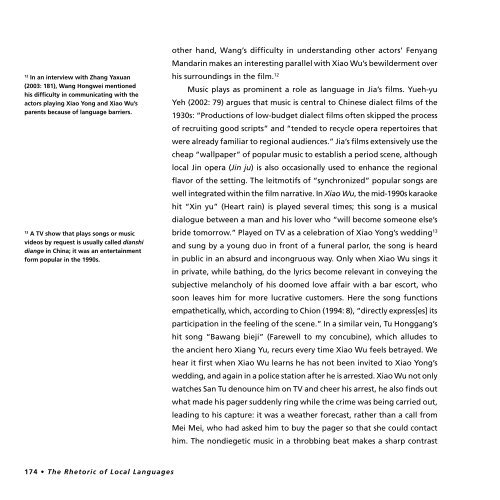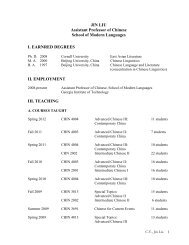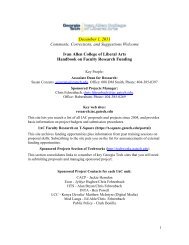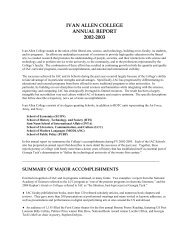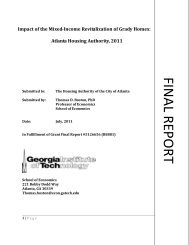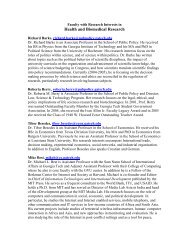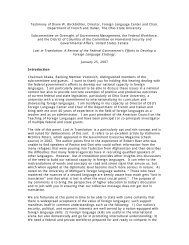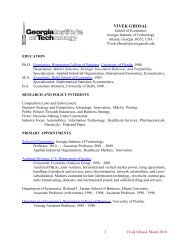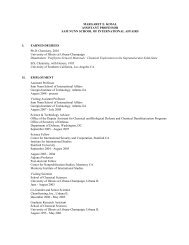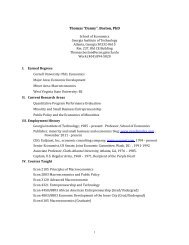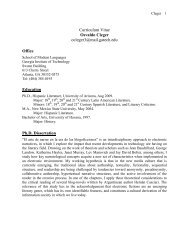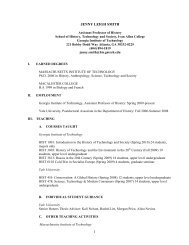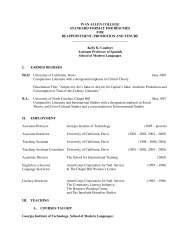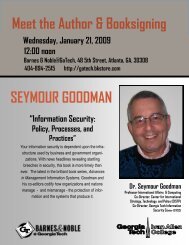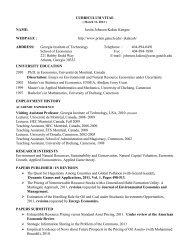Read this paper
Read this paper
Read this paper
You also want an ePaper? Increase the reach of your titles
YUMPU automatically turns print PDFs into web optimized ePapers that Google loves.
12<br />
In an interview with Zhang Yaxuan<br />
(2003: 181), Wang Hongwei mentioned<br />
his difficulty in communicating with the<br />
actors playing Xiao Yong and Xiao Wu’s<br />
parents because of language barriers.<br />
13<br />
A TV show that plays songs or music<br />
videos by request is usually called dianshi<br />
diange in China; it was an entertainment<br />
form popular in the 1990s.<br />
other hand, Wang’s difficulty in understanding other actors’ Fenyang<br />
Mandarin makes an interesting parallel with Xiao Wu’s bewilderment over<br />
his surroundings in the film. 12<br />
Music plays as prominent a role as language in Jia’s films. Yueh-yu<br />
Yeh (2002: 79) argues that music is central to Chinese dialect films of the<br />
1930s: “Productions of low-budget dialect films often skipped the process<br />
of recruiting good scripts” and “tended to recycle opera repertoires that<br />
were already familiar to regional audiences.” Jia’s films extensively use the<br />
cheap “wall<strong>paper</strong>” of popular music to establish a period scene, although<br />
local Jin opera (Jin ju) is also occasionally used to enhance the regional<br />
flavor of the setting. The leitmotifs of “synchronized” popular songs are<br />
well integrated within the film narrative. In Xiao Wu, the mid-1990s karaoke<br />
hit “Xin yu” (Heart rain) is played several times; <strong>this</strong> song is a musical<br />
dialogue between a man and his lover who “will become someone else’s<br />
bride tomorrow.” Played on TV as a celebration of Xiao Yong’s wedding 13<br />
and sung by a young duo in front of a funeral parlor, the song is heard<br />
in public in an absurd and incongruous way. Only when Xiao Wu sings it<br />
in private, while bathing, do the lyrics become relevant in conveying the<br />
subjective melancholy of his doomed love affair with a bar escort, who<br />
soon leaves him for more lucrative customers. Here the song functions<br />
empathetically, which, according to Chion (1994: 8), “directly express[es] its<br />
participation in the feeling of the scene.” In a similar vein, Tu Honggang’s<br />
hit song “Bawang bieji” (Farewell to my concubine), which alludes to<br />
the ancient hero Xiang Yu, recurs every time Xiao Wu feels betrayed. We<br />
hear it first when Xiao Wu learns he has not been invited to Xiao Yong’s<br />
wedding, and again in a police station after he is arrested. Xiao Wu not only<br />
watches San Tu denounce him on TV and cheer his arrest, he also finds out<br />
what made his pager suddenly ring while the crime was being carried out,<br />
leading to his capture: it was a weather forecast, rather than a call from<br />
Mei Mei, who had asked him to buy the pager so that she could contact<br />
him. The nondiegetic music in a throbbing beat makes a sharp contrast<br />
174 • The Rhetoric of Local Languages<br />
MCLC 18.2.indd 174<br />
12/20/06 2:01:36 PM


